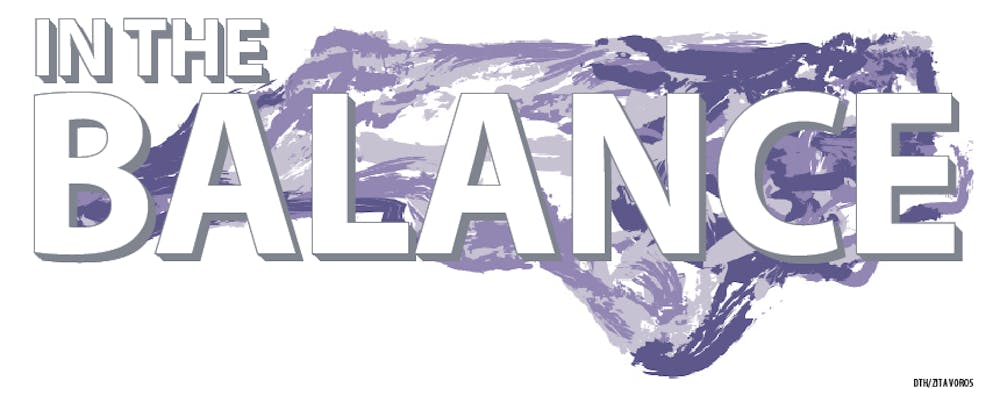A New York Times Upshot and Siena College poll released Monday morning had presidential candidates Donald Trump and Hillary Clinton in a dead heat in the state, with each candidate tied at 44 percent.
Without North Carolina, Donald Trump has a very difficult path to the White House, said Francis De Luca, president of the conservative-leaning Civitas Institute.
“Trump needs North Carolina to get to 270 electoral votes,” said Ferrel Guillory, professor at the UNC School of Media and Journalism. “If Clinton can deprive him of those votes, she’s on her way to victory.”
Guillory said the state reached battle ground designation only after 2008 when then-Sen. Obama became the first Democratic presidential candidate since 1976 to win the state’s electoral votes.
“As recently as 2004, there were no commercials in this state,” he said. “Republicans won this state easily. North Carolina as a swing state in presidential elections is a rather recent phenomenon.”
Guillory said the swing-state designation is in part due to changing demographics. Growing metropolitan areas like Raleigh and Charlotte have seen a surge of migration from other states, often creating areas of Democratic strength, he said.
“The electorate in North Carolina is half native North Carolinians and half people from elsewhere who have brought their political views in here,” Guillory said. A presidential candidate or running mate has visited the state every week since the Republican and Democratic conventions this summer.
“If Donald Trump wins comfortably, I think you’ll see people saying, ‘Well, North Carolina has returned to its past voting pattern,’” De Luca said. “If it goes the other way, people will say the state is still transitioning, because in the last three cycles, it would have flip-flopped twice.”




